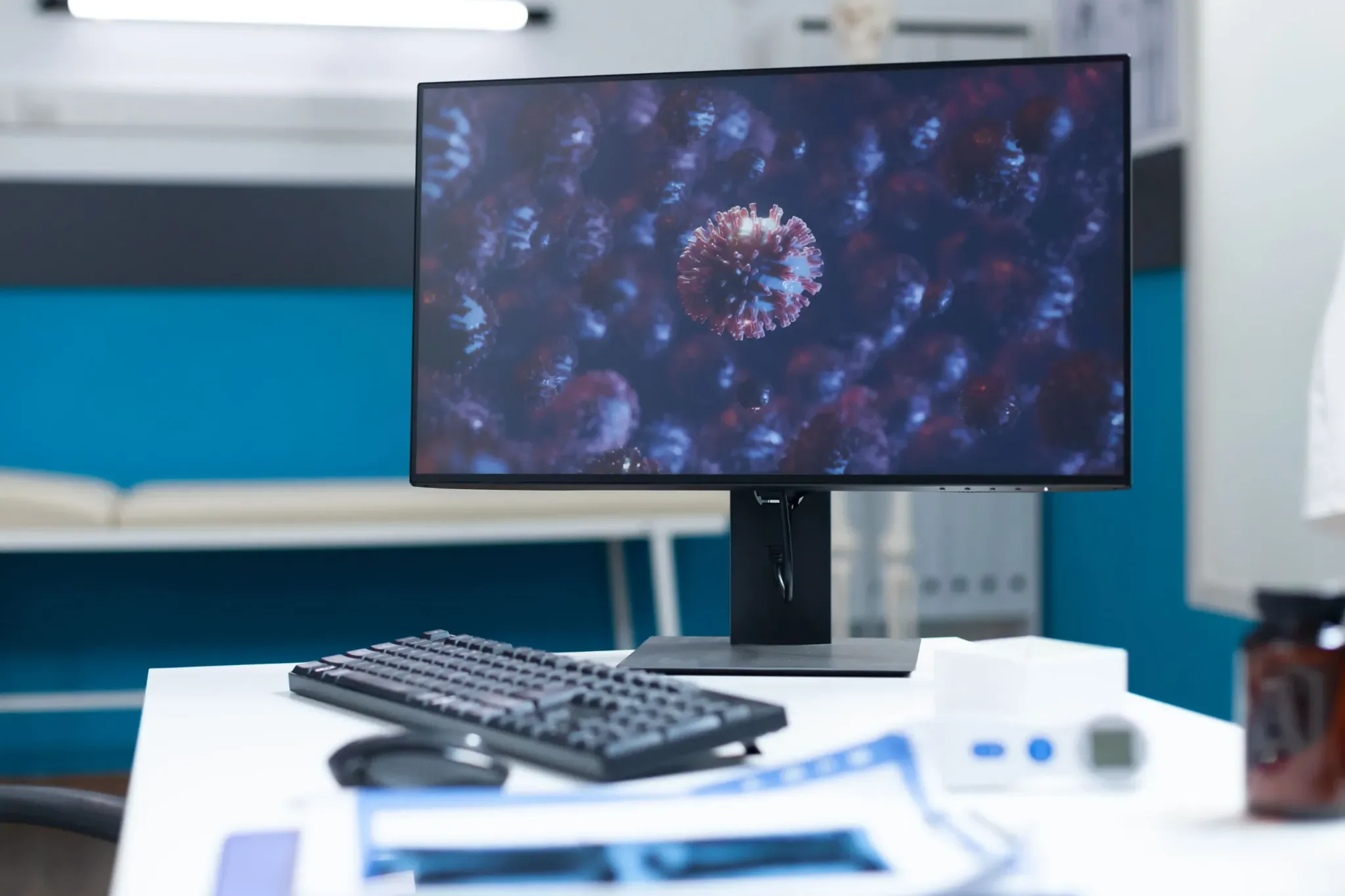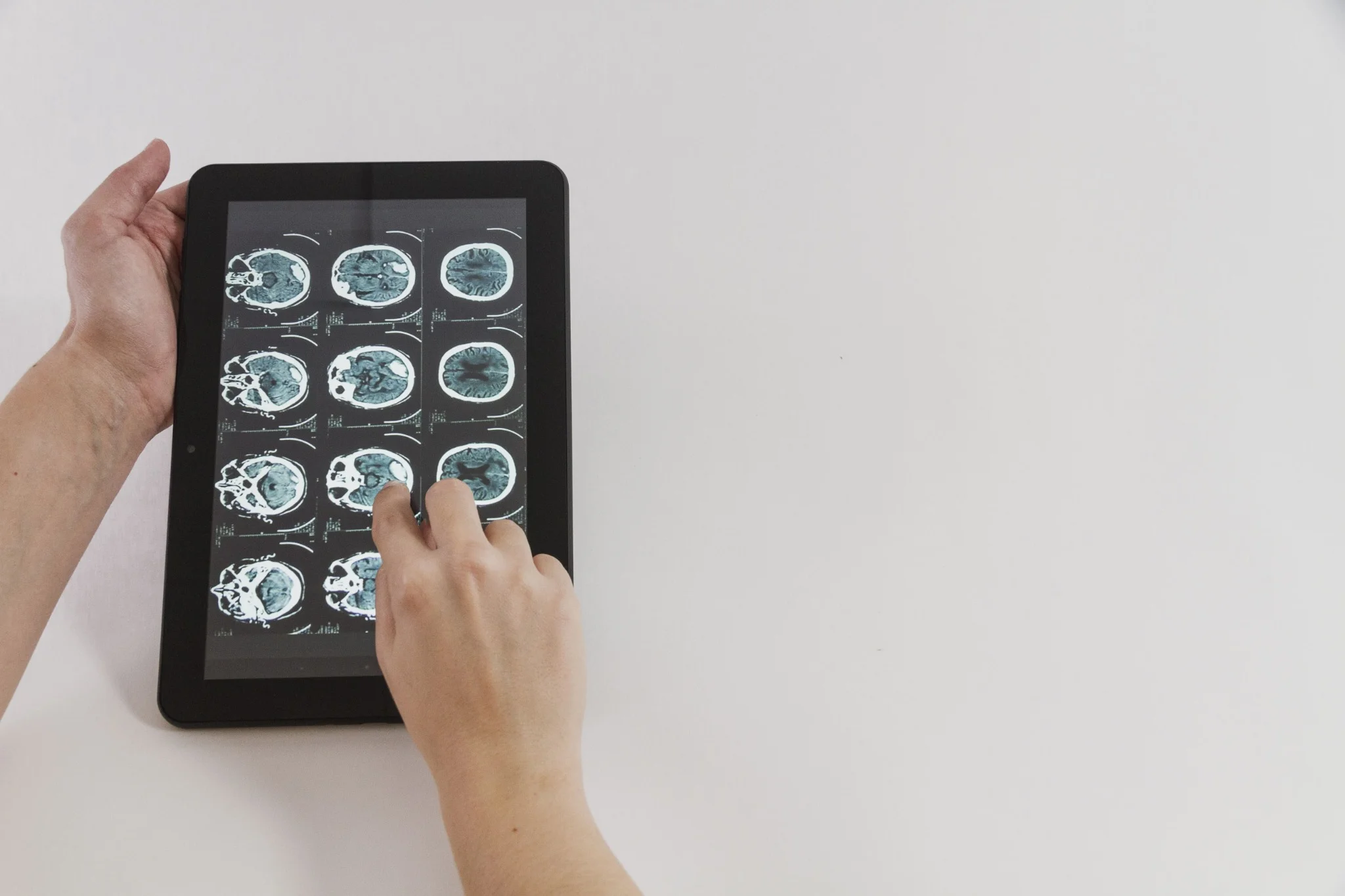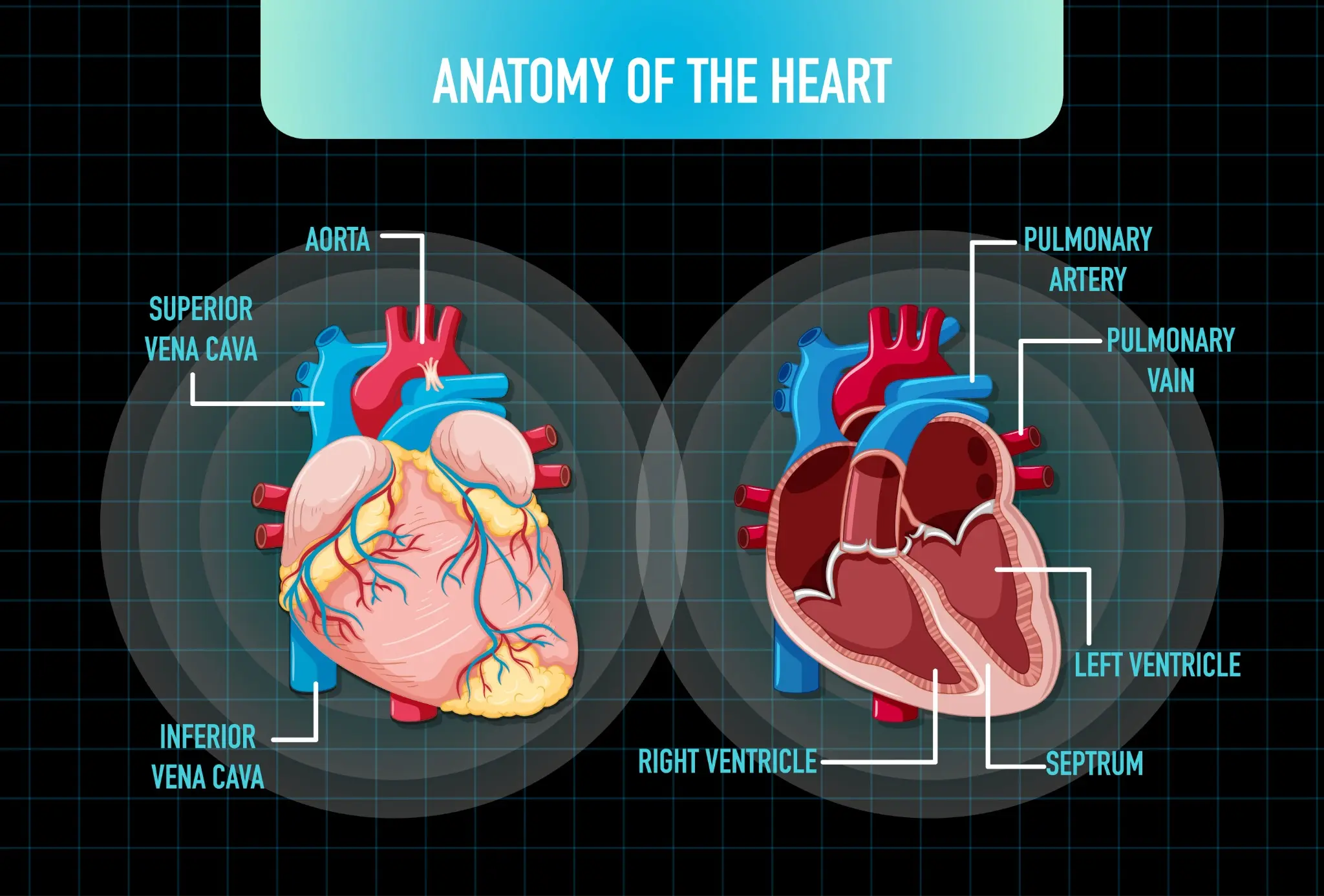Karyotyping by G-Banding, Peripheral Blood
Karyotyping Test Overview
A karyotype test analyses the shape, number, and size of chromosomes. Genes are present in chromosomes in cells. They are parts of deoxyribonucleic acid (DNA) passed down from one's parents. They contain information that defines one's unique traits, such as eye colour and height. Normally, people have 46 chromosomes in each cell, split into 23 pairs. Half of the chromosomes are from the father, and the other is from the mother. If the number of chromosomes is more or less than 46, or the shape or size of the chromosomes is unusual, it could indicate the presence of a genetic disease.
Karyotyping by G-banding peripheral blood is a test that examines a person's chromosomes for abnormalities in their number or structure. This test utilizes a special G-banding technique to stain chromosomes, revealing distinct banding patterns that allow cytogeneticists to identify any missing, extra, or rearranged chromosomes. This information is crucial for diagnosing various genetic conditions, birth defects, and some blood or lymphatic system disorders.
Written by: Dr Talat Khan, MD Pathology, Dept. of Genetics
Reasons for Undergoing the Karyotyping Test
A karyotyping test is a genetic analysis that can provide valuable insights into an individual's chromosomal makeup. There are several reasons why one might consider undergoing this test:
- Prenatal testing to identify potential chromosomal abnormalities in an unborn baby, especially if the mother is over 35 or there is a family history of genetic disorders
- Investigating infertility and reproductive issues, such as recurrent miscarriages or stillbirths, to detect chromosomal factors
- Diagnosing genetic disorders in children or adults presenting with symptoms suggestive of a chromosomal abnormality
- Assessing the risk of passing on genetic disorders when there is a family history of such conditions
- Aiding in the diagnosis and treatment of certain cancers and blood disorders associated with chromosomal changes
- Exploring the cause of developmental delays or unusual physical features in infants or young children
List of Parameters Considered During the Karyotyping Test
During a karyotype blood test, several key parameters are analysed to identify any chromosomal abnormalities:
- The number of chromosomes is counted to ensure the presence of the normal 46 chromosomes. Any deviation, such as an extra or missing chromosome, can indicate conditions like Down syndrome or Turner syndrome.
- The structure of the chromosomes is carefully examined, looking for any abnormalities in size, shape, or arrangement. Structural changes like breaks, deletions, or translocations can be associated with various genetic disorders.
- The arrangement of the chromosomes is studied to identify any irregularities in the sequence or pairing of the chromosomes.
Home Collection for Karyotyping Test Near You
Metropolis Healthcare understands the importance of convenience and comfort when it comes to medical testing. That's why they offer a hassle-free home collection service for the karyotype test. A trained phlebotomist will visit your residence at a scheduled time to collect the necessary blood samples, ensuring a safe and hygienic process.
This service eliminates the need to travel to a diagnostic center, making it easier for individuals with mobility issues or busy schedules. Rest assured, the samples are handled with the utmost care and transported to the laboratory under optimal conditions, maintaining the integrity of the test.
With Metropolis Healthcare, you can expect accurate results delivered to you in a timely manner, all from the comfort of your own home. Their commitment to making quality healthcare accessible is evident in their efforts to provide reliable diagnostic solutions right at your doorstep.
Karyotyping by G-Banding, Peripheral Blood Price
Metropolis Healthcare is a leading diagnostics centre and pathology lab in India equipped with the latest state-of-the-art technologies that provides the Karyotyping by G-Banding, Peripheral Blood with a clear pricing structure.
The Karyotyping by G-Banding, Peripheral Blood Price in Mumbai is ₹ 4,400 .
We are committed to deliver accurate and quality results from the best labs in India with complete transparency regarding test cost and turnaround time. No matter where you are, we strive to offer patients high-quality service that is affordable and accessible.
Frequently Asked Questions
Karyotyping is carried out to:
- To determine whether an adult's chromosomes contain an alteration that might be passed on to a child.
- See if a chromosome defect prevents a woman from getting pregnant or if it causes miscarriages.
- Check to see if a fetus has a chromosomal defect.
- Karyotyping can also determine whether chromosomal issues led to the fetus's stillbirth.
- Find the cause of any congenital disabilities or disabilities in a newborn.
- Assist in determining the best course of treatment for certain cancers.
- Patients with infertility (both male and female), poor obstetric history, puberty-related difficulties, or a family history of specific genetic illnesses may need to undergo chromosomal analysis. If infants or early toddlers exhibit evidence of intellectual incapacity or congenital malformations, a chromosomal study may be necessary. There are some blood malignancies and diseases for which this test may be used.
A karyotype test evaluates the shape, size, and number of chromosomes, which are parts of the cells containing genes. Genes are parts of DNA passed down from one's mother and father. It is usually performed to detect genetic abnormalities that a developing baby has.
This test is useful for the following reasons:
- To find trisomies, monosomies, etc.
- Determine the number of chromosomes.
- Check for chromosome structural alterations, such as deletions, duplications, translocations, etc.
Karyotyping test requires a blood sample. A tourniquet (elastic) band is placed tightly on the upper arm. The patient is then asked to make a fist. This helps in the build-up of blood filling the veins. The skin is disinfected before needle insertion and the blood sample is collected in vacutainer.
Adults may need Karyotyping testing if they:
- Have issues getting pregnant or their partner pregnant. Occasionally infertility in men or women can be caused by a genetic defect.
- Have certain blood disorders or cancers. Chromosome changes can occur due to illnesses, including multiple myeloma, lymphoma, leukaemia, or anaemia. Karyotyping can detect these anomalies and help with treatment.
- Have a family history of particular genetic illnesses. Chromosome analysis can reveal whether one has abnormal chromosomes and how likely it is to be passed on to offspring.
Abnormal results from a Karyotyping by G-Banding Peripheral Blood test can indicate the presence of chromosomal abnormalities. These abnormalities can come in two forms: numerical (number of chromosomes) or structural (arrangement of chromosomes).
Here's a breakdown of what abnormal results might mean:
- Numerical abnormalities: This includes having too many (trisomy) or too few (monosomy) chromosomes. Common examples include Down syndrome (Trisomy 21) or Turner syndrome (monosomy X). These can lead to a variety of health issues depending on the specific chromosome affected.
- Structural abnormalities: This refers to changes in the structure of a chromosome, such as a deletion, duplication, translocation (where a piece of one chromosome is attached to another). These can also cause a range of health problems, depending on the specific abnormality and the genes involved.
- When a woman experiences miscarriage or infertility, when a newborn has congenital abnormalities, when an adult exhibits symptoms of a genetic condition, or when a fetus is suspected to have a chromosomal abnormality, chromosome analysis may be prescribed.
- When a chromosomal issue has been identified in a kid or another family member, other members of the family may also be requested to go for chromosome test.
- When a person has leukemia, lymphoma, myeloma, refractory anemia, or other forms of cancer, it may be required to look for acquired chromosomal abnormalities.
- If the family history has a known chromosomal abnormality.
There are no specific preparations required for the test. However, it is recommended that you consult with your healthcare provider before taking the test, as they may have specific instructions or recommendations based on your individual medical history and current health status.
Depending on the results, doctors may recommend other forms of genetic testing for further prognosis.
- G-Banding
- Chromosome Analysis
- Karyotype Genetic Test
The two common types of Karyotyping are Product of Conception (POC) and Couple Karyotyping. It aids in the identification of any chromosomal abnormalities in fetuses and parents.
- POC Karyotyping It is carried out using samples taken from a miscarried fetus. If the doctor suspects any chromosome abnormalities, they may advise you to do POC karyotyping on the fetus from the lost pregnancy. The other name for POC karyotyping is chromosomal analysis.
- Couple Karyotyping The couple karyotyping is performed on both partners. Chromosome abnormalities are detected using blood samples. However, this can be done with a single partner as well. If the test is conducted on the mother, it is referred to as Karyotyping Single.
A karyotyping test is a genetic analysis that examines the number, size, and structure of an individual's chromosomes. It involves studying a sample of cells to identify any chromosomal abnormalities that may be associated with genetic disorders.
The karyotype test can detect abnormalities in the number and structure of chromosomes. This includes identifying extra or missing chromosomes, as well as structural changes like breaks, deletions, or translocations. These abnormalities can be associated with various genetic disorders.
Yes, a karyotype test is a type of genetic test that specifically focuses on analysing an individual's chromosomes. It provides insights into the genetic makeup and can help identify chromosomal abnormalities related to genetic conditions.
Karyotype test reports indicate whether an individual's chromosomes appear normal or if there are any abnormalities present. A normal result would show 46 chromosomes arranged in 23 pairs. Abnormal results may suggest the presence of a genetic syndrome or condition.
If the karyotype test reports are positive, indicating an abnormal result, it suggests the presence of chromosomal changes that may be associated with a genetic disorder. In such cases, further testing, genetic counseling, and appropriate medical management or treatment plans may be necessary.
Karyotype tests are generally considered highly accurate. However, the accuracy can be influenced by factors such as the quality of the sample and the laboratory techniques employed. In some cases, repeat testing may be recommended to confirm the results.
The benefits of karyotype testing include early detection of genetic disorders, aiding in family planning decisions by identifying potential genetic risks, diagnosing the underlying cause of developmental delays or infertility, and guiding treatment decisions for certain cancers and blood disorders.
The risks associated with karyotype testing are primarily related to the procedure used to obtain the sample. Blood tests carry minimal risks, while procedures like chorionic villus sampling (CVS) and amniocentesis have a small risk of miscarriage. Bone marrow aspiration and biopsy may cause bleeding or infection.
The karyotype test can help diagnose various genetic disorders, including Down syndrome, Turner syndrome, Klinefelter syndrome, trisomy 13, trisomy 18, and certain types of cancer and blood disorders associated with chromosomal abnormalities, such as the Philadelphia chromosome.
Certain medications, particularly those that impact cell growth or division (e.g., chemotherapy drugs), have the potential to affect the results of a karyotype test. It's important to inform your healthcare provider about any recent medications or treatments you have received.
Fasting is not typically required before undergoing a karyotype test. However, it's important to follow any specific instructions provided by your healthcare provider, as there may be individual circumstances where fasting is necessary.
Factors that can influence the results of a karyotype test include recent blood transfusions, certain medications, and technical issues during sample collection or laboratory analysis. If abnormal results are obtained, repeat testing may be advised to confirm the findings.
The turnaround time for karyotype test reports can vary, but it usually takes 8 hours for the results to become available. The exact time frame may depend on the complexity of the analysis and the specific laboratory processing the sample.
Ratings & Reviews (0)
Why Metropolis?
Metropolis has a team of 200 senior pathologists and over 2000 technicians delivering diagnostic solutions in the areas of routine, semi specialty and super specialty domains like Oncology, Neurology, Gynaecology, Nephrology and many more.
We offer a comprehensive range of 4000+ clinical laboratory tests and profiles, which are used for prediction, early detection, diagnostic screening, confirmation and/or monitoring of the disease.





















 WhatsApp
WhatsApp